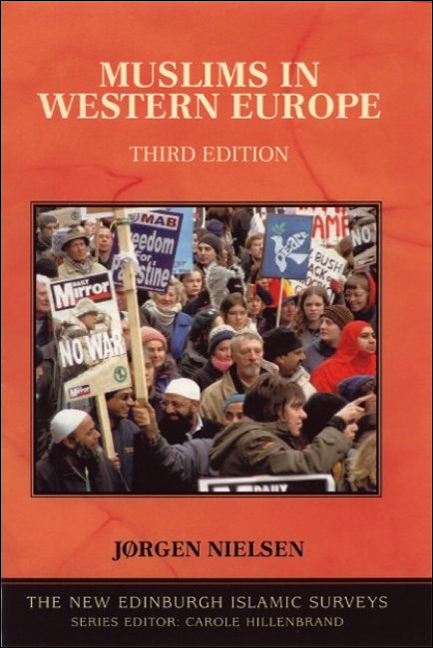9 - Muslim organisations
Published online by Cambridge University Press: 20 December 2017
Summary
In any consideration of the development of Muslim organisational activity in western Europe, three main processes of establishment can be identified: groups which arose out of the community and its own perceptions of its needs; groups set up as extensions of organisations and movements in the country of origin; and groups set up by governments or government-related agencies.
During the first phase of Muslim immigration, the migrants were mostly men on their own coming for a limited period. The fact that they were men on their own meant that requirements of religious practice were minimal – it was usually sufficient to be able to pray. This minimal religious practice was further marginalised by the expectation of imminent return home. The situation changed fundamentally when the migration of Muslim workers became an immigration of Muslim families. Firstly, the sense of temporariness began to weaken, to be replaced by a sense of permanence. Secondly, the presence of wives and children critically widened the scope for interaction with the surrounding society, especially in education, health and social welfare, as indicated in Chapter 8. As a result, large areas of traditional culture came under question, creating a need for the construction of institutions which could either help defend tradition or lower the level of tension.
It is necessary first to attempt to present an overall perspective on the processes involved in establishing Muslim organisations in Europe and an identification of the factors, both in origins and in the European environment, which have affected the nature of organisations. Certainly in Britain, and probably elsewhere in Europe, these elements have been a major force in determining the balance between and the character of the institutional integration of Muslim communities.
The context of origins
The study of Muslim communities in Europe has suffered from a lack of awareness of the complex of structure and culture from which the communities come. It is certainly fair to complain that, on the whole, British race relations and ethnic minority studies have, with the partial exception of some social anthropologists, shown either ignorance or lack of interest in the contexts out of which the immigrated communities have come, which is somewhat surprising in view of the oft-repeated assertion of the weight of imported ‘cultural baggage’.
- Type
- Chapter
- Information
- Muslims in Western Europe , pp. 133 - 168Publisher: Edinburgh University PressPrint publication year: 2015

